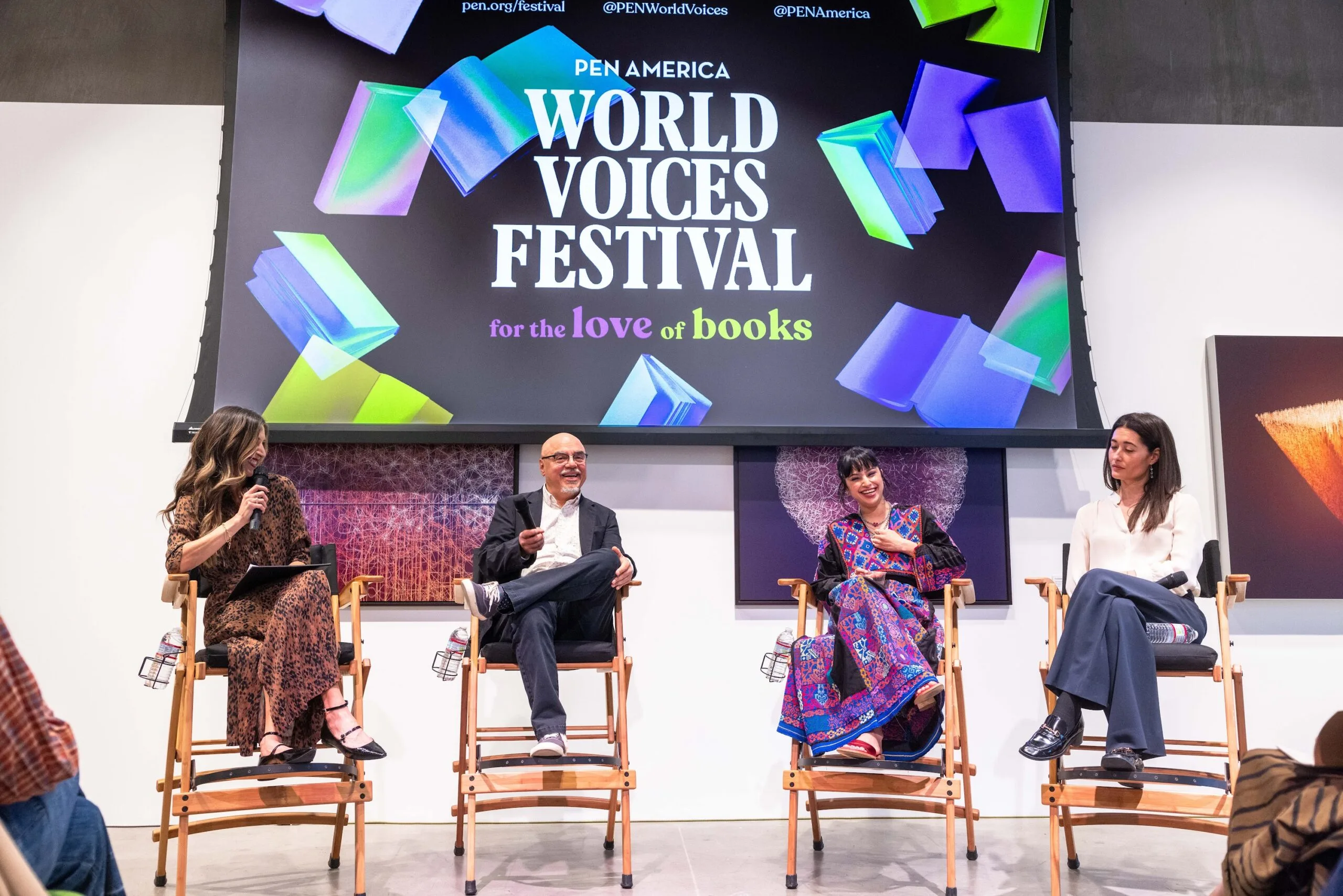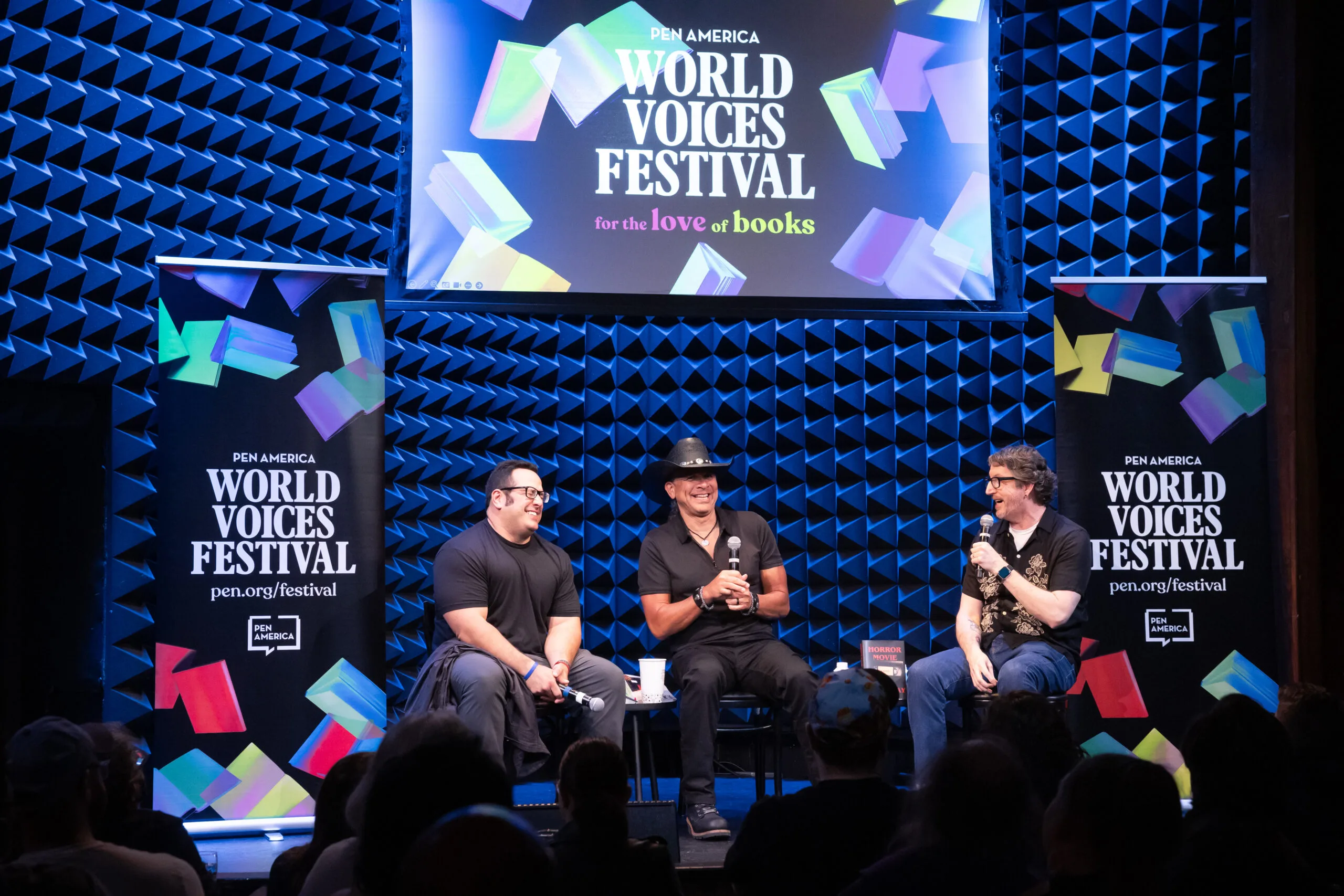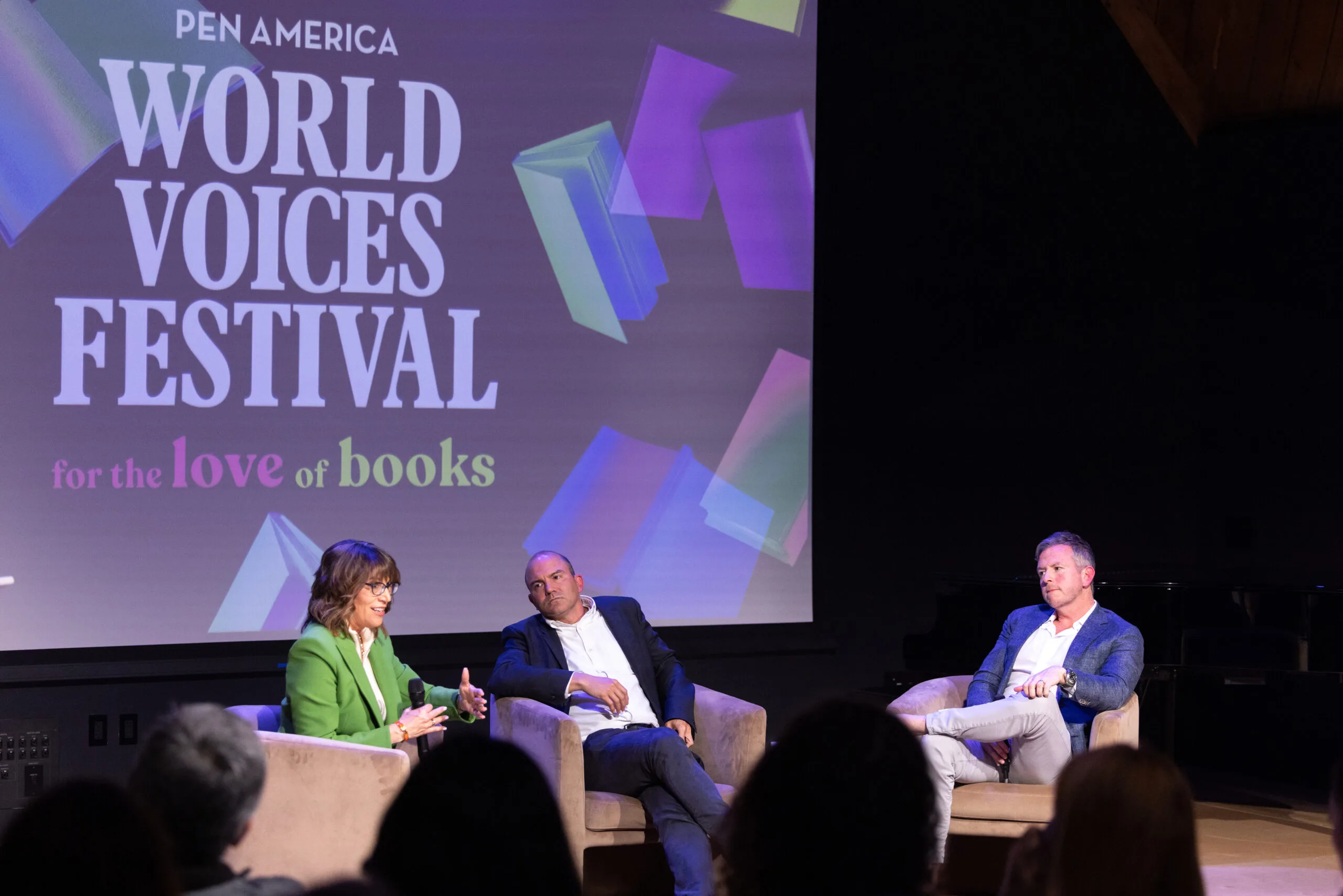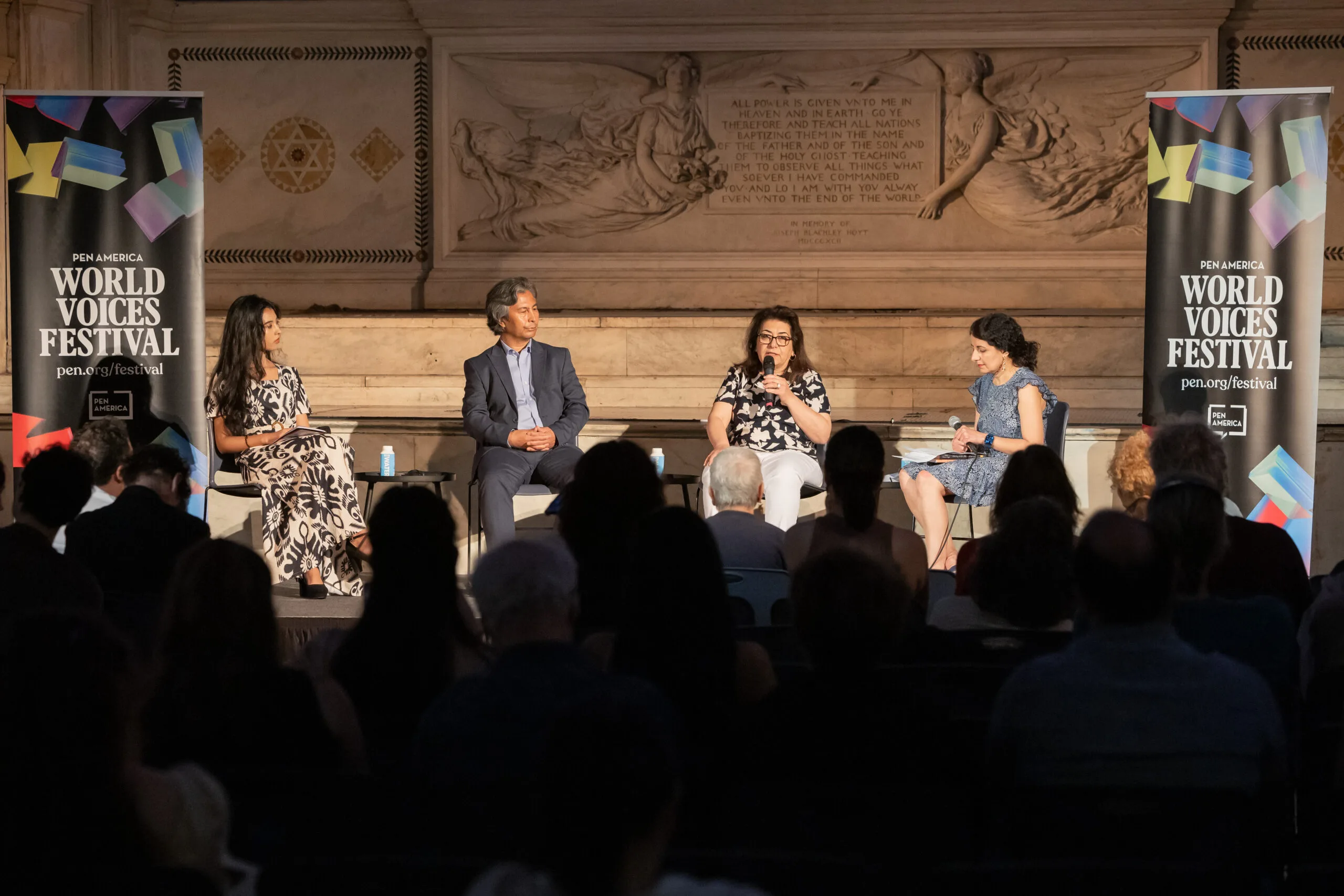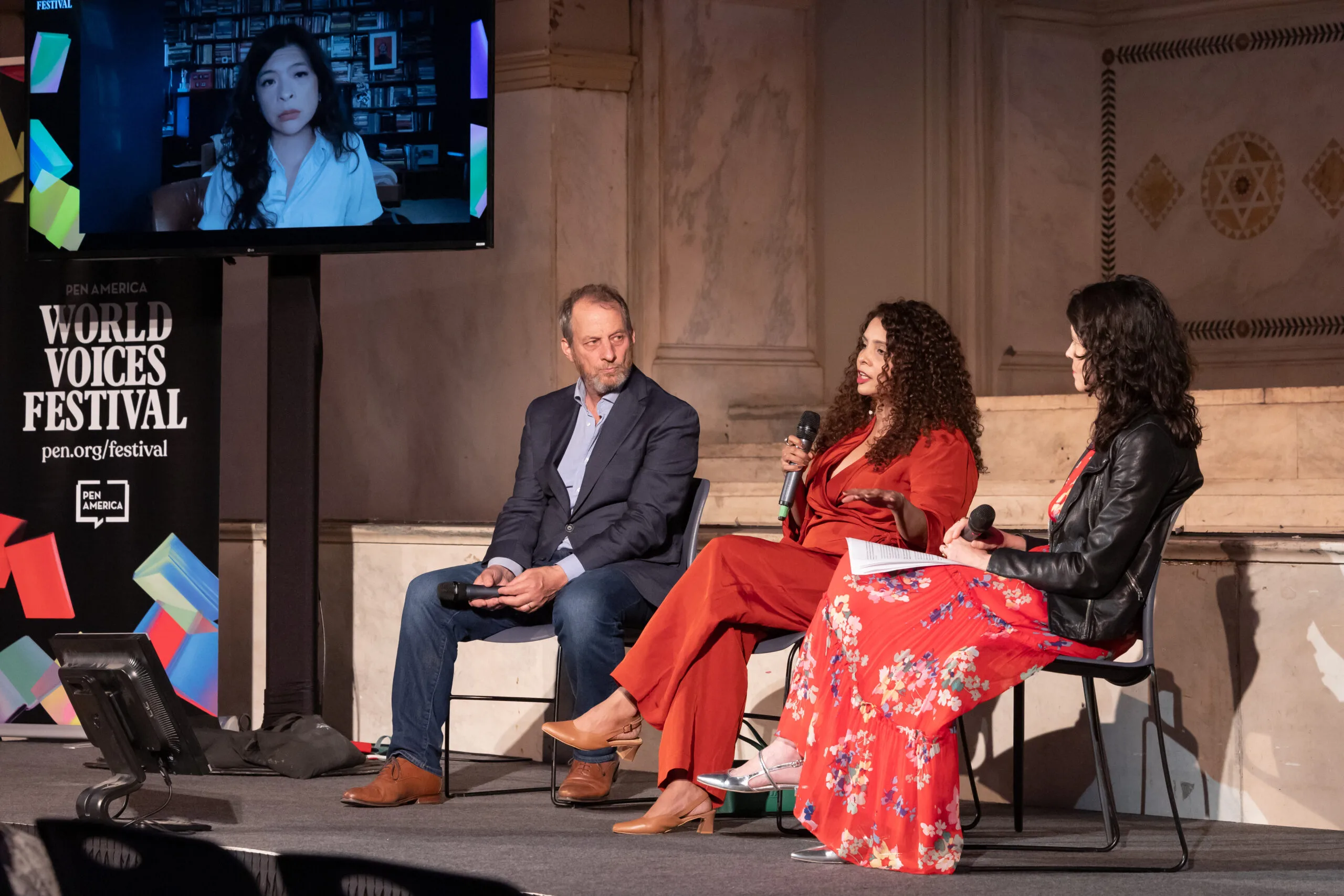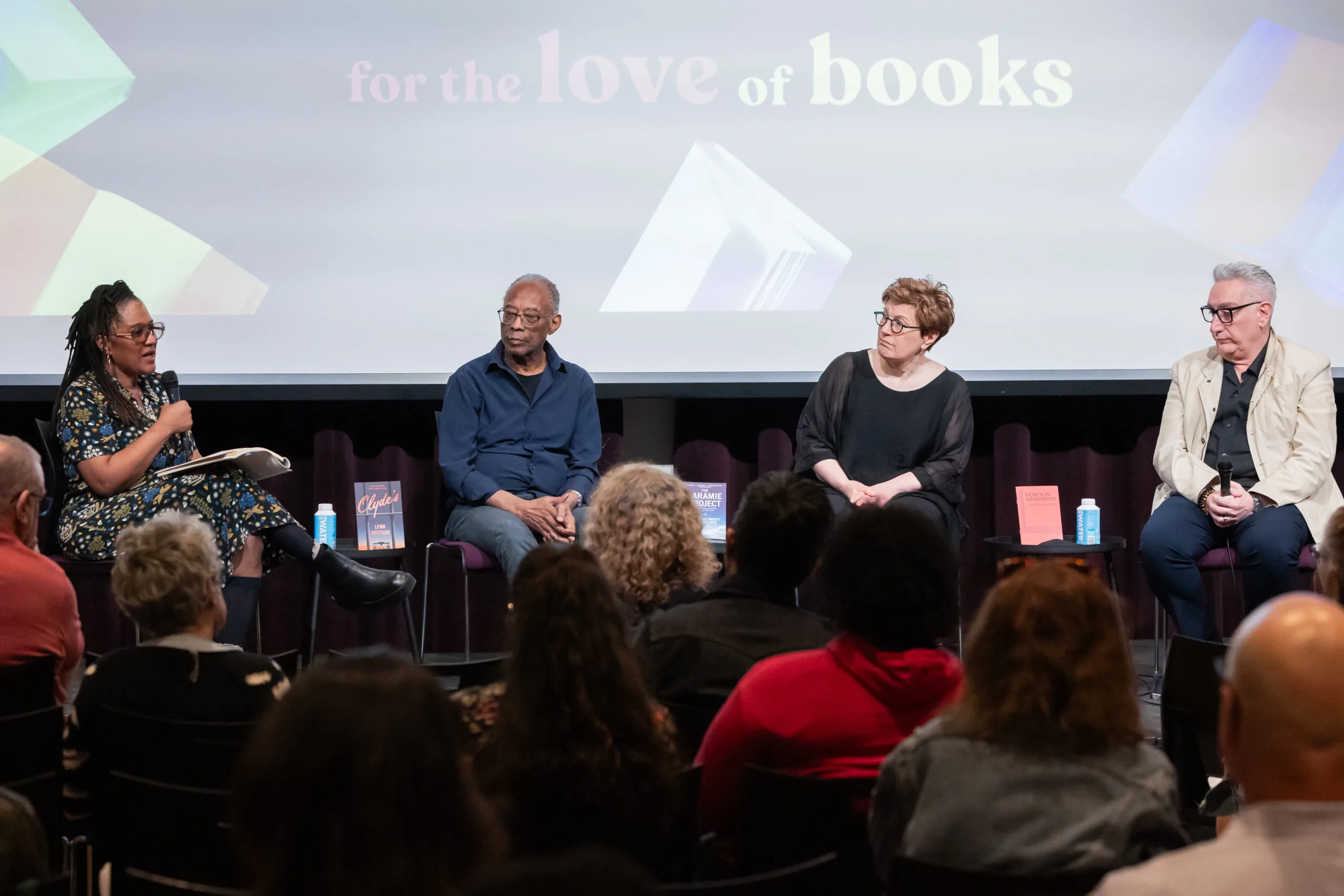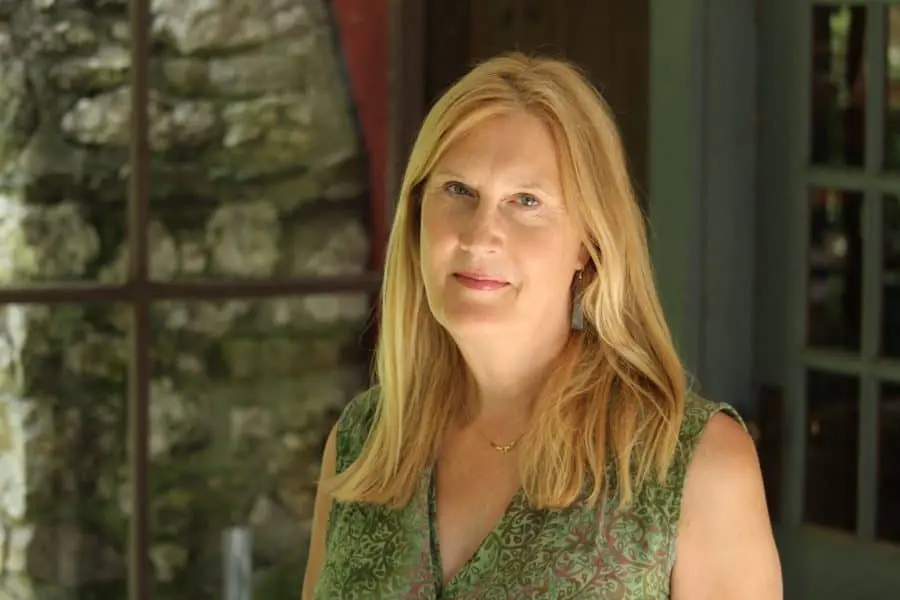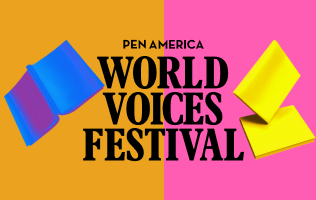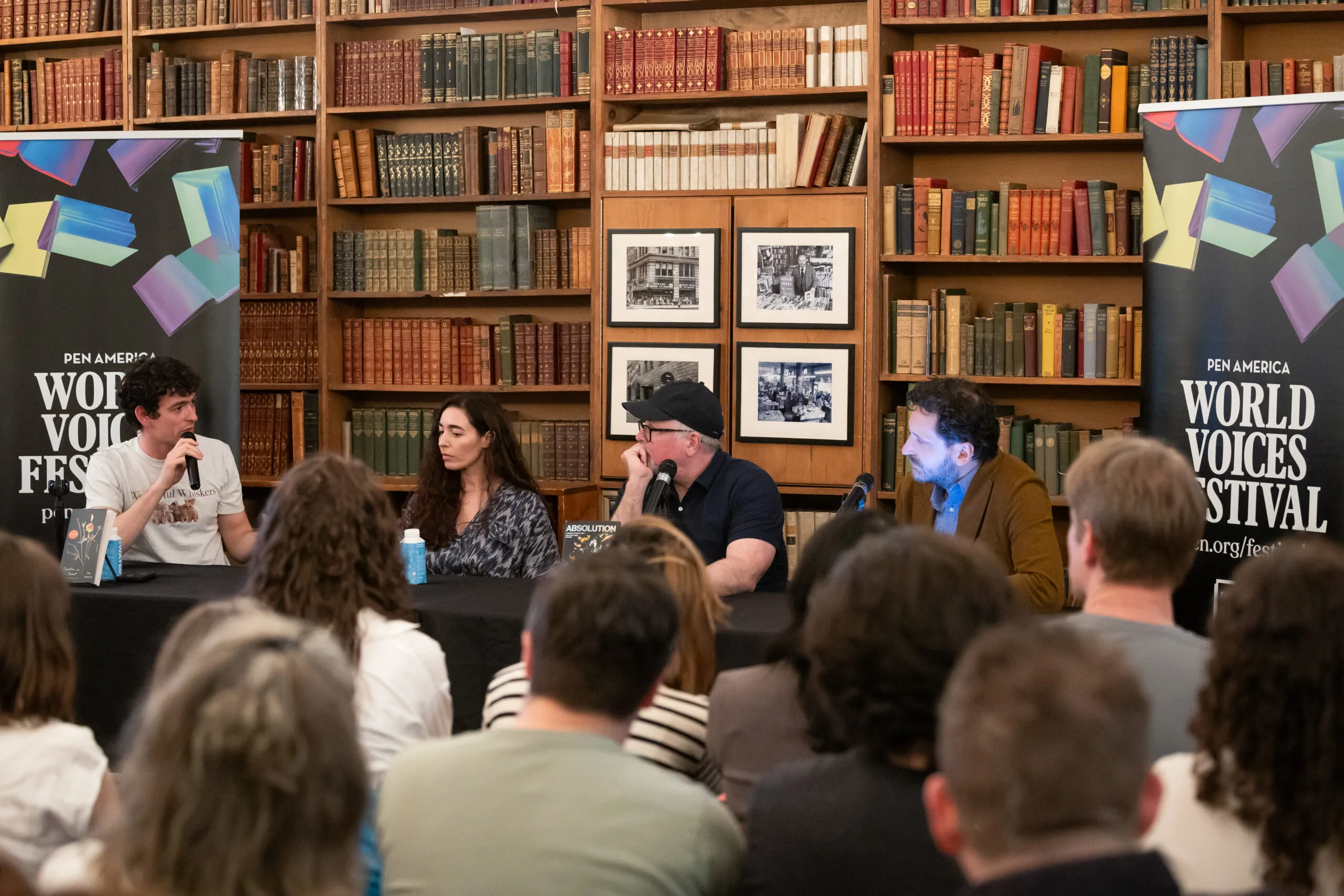
Raptures and apocalypses have preoccupied our attention and imagination throughout the long arc of human history. But what happens after?
At the PENWorld Voices Festival, After The Fall: Post-Apocalyptic Novels, Uruguayan author Fernanda Trías (Pink Slime), Catalan author Pol Guasch (Napalm in the Heart), and American author Jeff VanderMeer (Absolution) discussed their new post-apocalyptic novels in a conversation moderated by historian and journalist Ilia Veniavkin. The authors explored the ways post-apocalyptic narratives can reveal societal and structural hierarchies, raise climate concerns, and reflect and respond to the tribulations of contemporary life.
On the draw of catastrophe
Guasch: “When I was writing the novel, I had the feeling, it was like a physical sensation, that I was writing about my present all the time. . .The novel worked as a broken mirror, somehow, of reality.”
Trías: When Trías started writing her novel in 2018, she thought that catastrophe “was a very urgent thing to think about and explore in fiction.” After her novel was published, “more and more narratives started coming out in Spanish that deal with the environment and climate change and all that.”VanderMeer: The Climate Crisis is “a reality that’s unevenly distributed, you know, to the point that I can write a novel called Borne where there’s a giant flying bear, there sure is, in this post-apocalyptic city. But, in the foreground, there are scavengers, trying to make a living and finding [something] to eat every day. But it’s not fantastical at all. That’s something that people do right now in certain places in the world, partially because of war sometimes, and sometimes because of climate crisis.”
The novel worked as a broken mirror, somehow, of reality.
On the role of fiction
The panelists discussed what apocalyptic fiction can reveal that isn’t possible in other genres or mediums
Trías: “I don’t know if there’s a function to the fiction, but if there is, I would say it makes things bearable enough so that you can read it….What we can do with fiction and with art in general, is to make it bearable enough so that the reader is going to stay there and go through the experience.”
VanderMeer: “I sometimes joke that, what we really need is the world’s stupidest science fiction writer to write the stupidest book possible, in the most banal hybrid possible to capture this moment… it goes beyond idiocracy at some point.”
What we can do with fiction and with art in general, is to make it bearable enough so that the reader is going to stay there and go through the experience.
On nature vs. technology
The panelists discussed whether their books acted as a warning, or if there’s hope in the idea of in the end, nature will prevail
VanderMeer: “We have forgotten that we are part of the landscape. We’re part of nature. I mean that in a very starkly scientific way….A lot of our policy decisions, a lot of the things that we decide to do with technology directly go against the way the world works to be in balance.”
On whether their characters can heal
The panelists discussed why they chose to write fragmented characters and whether healing was something that they wanted to pursue in their novels
Guasch: “The fragmentation of the subject….it doesn’t necessarily have to be something bad or sad, but it’s something that is a part of life.”
Trías: “It’s impossible not to have a huge sense of loss if you are witnessing the end of the world. So in the end, it’s about mourning….As a society, we never go through this mourning period or process collectively….[The main character] seems to be the only one who actually wanted to go through this mourning process, to deal with the fact that things are never going to be the same.”
I think that the act of writing is an act of hope. If I didn’t have hope personally, I wouldn’t write.
On staying hopeful
Guasch: “Keep going, and you’ll believe in the promise of something. Sometimes it’s [the promise] of love. Sometimes it’s the promise of a future…sometime’s it’s the promise of a movement.”
Trías: “I really think that that is actually where hope lies in real life too, right, going back to building community and, kind of, repairing the social fabric.”
VanderMeer: “It’s in the literal policies that we need to enact in the logical way, in the order we need to enact them in order to get where we need to go….I think that the act of writing is an act of hope. If I didn’t have hope personally, I wouldn’t write.”
Want more?
Check out the panelists’ books:
- Pink Slime by Fernanda Trías
- Napalm in the Heart by Pol Guasch
- Absolution by Jeff VanderMeer
